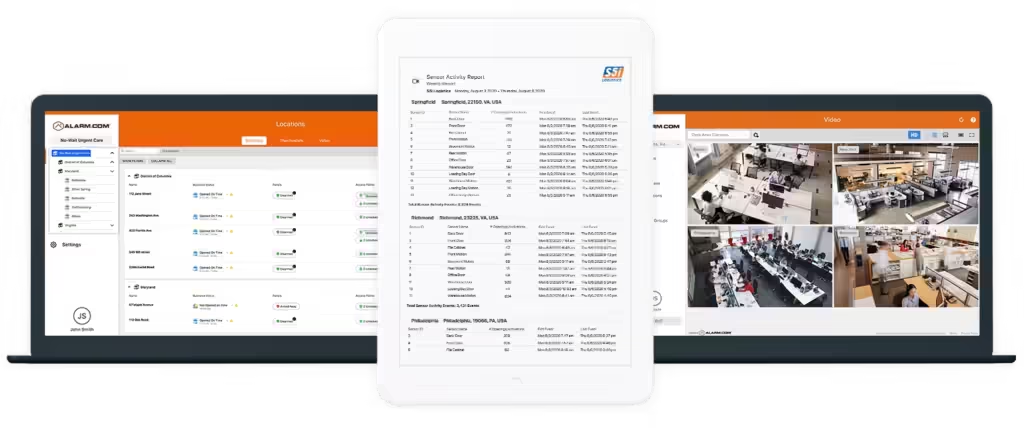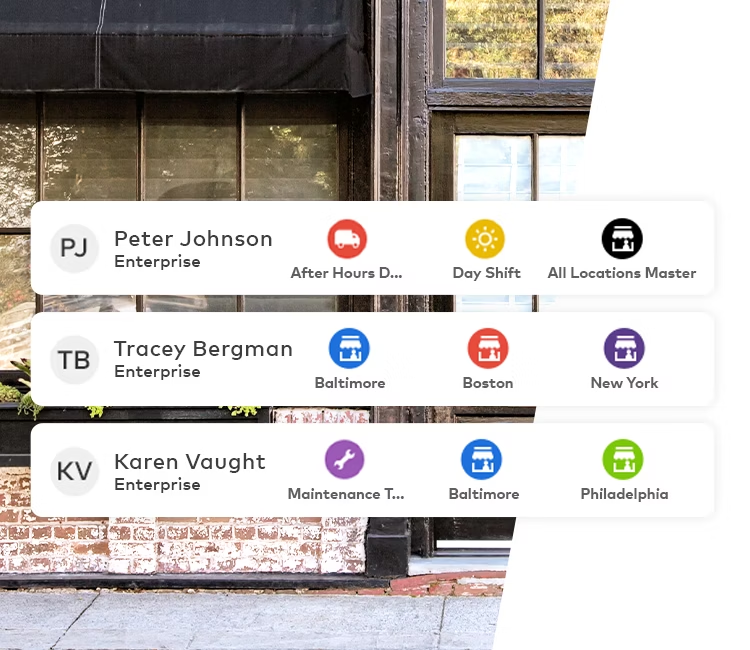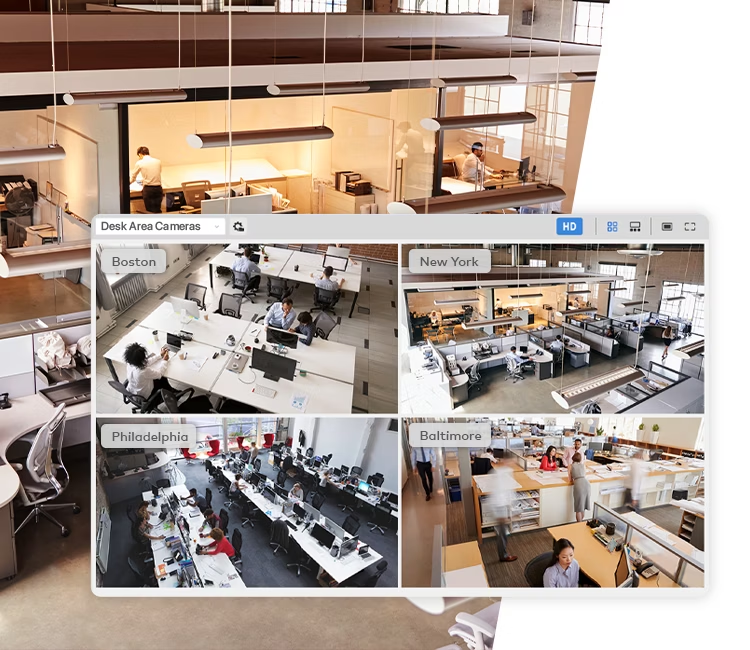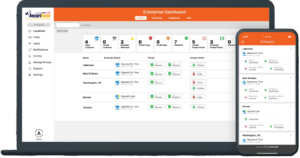Retailers are boosting profits by leveraging multi-location business management software and AI analytics. This article explores how retailers leveraging multi location business management software and ai analytics to boost profits, by helping them optimize inventory, streamline operations, and enhance customer experiences. These data-driven decisions enabled by these technologies are transforming retail management and increasing profitability.
Whats in this article?
- Multi-Location Retail Business: Business Management Software And AI Analytics
- How Retailers Leveraging Multi-Location Business Management Software and AI Analytics to Boost Profits
- Introduction
- The Importance of Multi-Location Management in Retail
- Benefits of Muli-location Retailers Leverage AI Analytics
- Optimizing Inventory Management Across Locations
- Enhancing Customer Experience with AI-Powered Insights
- Streamlining Operations with Centralized Management
- AI-Driven Demand Forecasting
- Case Studies: Success Stories from Top Retailers
- Future Trends in AI and Multi-Location Management
- Summary
- Frequently Asked Questions
Multi-Location Retail Business: Business Management Software And AI Analytics
Retailers are increasingly using AI analytics and multi-location business management software to optimize inventory, enhance customer experiences, and streamline operations across multiple locations. AI-driven tools such as real-time stock tracking, demand forecasting, and personalized marketing campaigns help retailers reduce operational inefficiencies, optimize inventory levels, and foster customer loyalty.
Success stories from top companies like Amazon, Zara, and Home Depot highlight the significant benefits of leveraging AI analytics for improving supply chain management, customer engagement, and operational efficiency.
How Retailers Leveraging Multi-Location Business Management Software and AI Analytics to Boost Profits

Retailers are operating in a new era where customer engagement and supply chain optimization are not just goals but necessities for survival and growth. By leveraging AI and machine learning, retailers are transforming their operations, from the stockroom to the sales floor. The insights gained through analyzing customer data and sales data are helping retail businesses predict trends, optimize store operations, and enhance operational efficiency.
This strategic fusion of technology is enabling retailers to streamline supply chain operations, refine supply chain management, and ultimately, increase profits.
Introduction
In today’s competitive retail market, the ability to efficiently manage multiple locations and analyze complex data sets is what sets successful retailers apart. Multi-location business management software and AI analytics have become the linchpin for these retail companies, allowing them to adapt to external factors and thrive in the rapidly evolving retail landscape.
The Importance of Multi-Location Management in Retail
For retailers operating multiple outlets, the complexity of ensuring consistent inventory management, customer engagement, and supply chain optimization cannot be overstated. The adoption of AI analytics in retail enhances these aspects by providing real-time insights and data-driven decisions, enabling retailers to optimize inventory management and streamline supply chain operations.
Embracing this technological elevation is crucial for improving customer satisfaction, as it allows for better understanding and utilization of customer feedback, ultimately maintaining a competitive edge in the retail industry.
Benefits of AI Analytics for Retailers
The benefits of AI in the retail sector are transformative. Retailers can leverage AI to:
- Analyze big data and gain valuable insights into customer engagement and behavior
- Achieve inventory optimization
- Enhance operational efficiency
- Deliver an enhanced customer experience
With these advanced analytics, retailers can optimize their operations and stay ahead in the competitive market.
AI analytics serve as a bridge between analyzing customer data and implementing targeted marketing campaigns that resonate with consumers.
Optimizing Inventory Management Across Locations
Inventory management is a critical challenge for retailers with multiple locations. AI analytics offer a game-changing solution, enabling retailers to:
- Streamline inventory management
- Enhance operational efficiency
- Optimize inventory to ensure products are available when and where they are needed
- Improve customer satisfaction
- Drive sales
Real-Time Stock Tracking

Real-time stock tracking is a cornerstone of effective inventory management. With centralized inventory management systems, retailers can keep a pulse on stock levels across all locations, facilitating timely replenishment and minimizing stock discrepancies.
This level of supply chain optimization is made possible by harnessing historical sales data and machine learning algorithms to streamline supply chain operations and optimize inventory levels.
Reducing Stockouts and Overstocks
AI-powered demand forecasting is revolutionizing inventory management by utilizing predictive analytics to anticipate market trends. This forward-looking approach helps retailers optimize inventory levels, reducing the risk of stockouts and overstocks. The resulting operational efficiency not only ensures product availability but also contributes to cost savings and enhanced customer satisfaction.
Efficient Inventory Transfers
Efficient inventory transfers between locations are essential for maintaining optimal stock allocation and reducing operational inefficiencies. Multi-location business management software streamlines this process, ensuring that inventory is distributed according to real-time demand, thus enhancing supply chain operations and preventing out-of-stock scenarios.
Enhancing Customer Experience with AI-Powered Insights
In the quest to improve customer satisfaction, AI-powered insights offer a potent tool for retailers. Here are some ways in which AI can help retailers enhance the overall customer experience:
- Analyzing customer data
- Understanding consumer behavior
- Leveraging machine learning algorithms
- Predicting customer behavior
- Tailoring experiences to individual preferences
- Fostering customer loyalty
By utilizing these AI-powered insights, retailers can better understand their customers and provide personalized experiences that lead to increased satisfaction and loyalty.
Personalized Marketing Campaigns
Personalized marketing campaigns, powered by AI, are changing the landscape of customer engagement. By analyzing customer data and consumer behavior, retailers can craft targeted marketing campaigns that resonate with the customer’s unique preferences, fostering a deeper connection and driving customer loyalty.
Understanding Customer Preferences
Understanding customer preferences is critical for retailers looking to improve customer satisfaction. AI algorithms sift through vast amounts of customer data, from purchasing patterns to unstructured data like social media interactions, to gain valuable insights into consumer behavior. This enables retailers to anticipate consumer demand and tailor offerings to meet the evolving expectations of their customers.
Improving Customer Satisfaction
AI-driven tools such as chatbots and virtual assistants provide instant, automated assistance to customer queries, significantly improving customer engagement. By handling routine inquiries, these tools free up store associates to deliver personalized services, further enhancing customer satisfaction and cementing customer loyalty.
Streamlining Operations with Centralized Management

Centralized management is a linchpin for retailers seeking to streamline operations and maintain consistency across multiple locations. By leveraging AI analytics, retailers can standardize business processes, optimize the supply chain, and ensure compliance with regulations, all of which contribute to a seamless operational framework.
Standardizing Processes
Standardizing processes across multiple retail locations is essential for ensuring brand consistency and operational efficiency. Some ways to achieve this include:
- Using AI analytics tools to analyze data and identify best practices
- Replicating successful strategies across the network of stores
- Streamlining operations
By implementing these strategies, retailers can improve their overall performance and create a consistent experience for customers across all locations.
Workforce Optimization
Workforce optimization is another area where AI analytics can make a significant impact. AI-powered tools can:
- Analyze data related to demand forecasting and labor availability
- Optimize scheduling
- Reduce labor costs
- Ensure that staff is deployed efficiently to meet customer needs.
Compliance and Regulation Management
Compliance and regulation management is made more manageable with AI analytics. These tools monitor operations, ensuring that business practices across all locations adhere to company policies and regulations, mitigating risks and maintaining customer trust.
AI-Driven Demand Forecasting
AI-driven demand forecasting represents a paradigm shift in how retailers approach supply chain management. By analyzing historical sales data and market trends, AI analytics provide accurate predictions, allowing retailers to optimize inventory and meet consumer demands efficiently.
Case Studies: Success Stories from Top Retailers

The success stories of top retailers like Amazon, Zara, and Home Depot exemplify the transformative power of AI analytics in the retail industry. These companies have harnessed the technology to optimize inventory management, enhance customer experiences, and drive operational efficiencies.
Amazon
Amazon, a pioneer in leveraging big data, uses AWS to:
- Integrate sales data, customer traits, and product information
- Improve decision-making
- Enhance fraud detection
- Increase customer lifetime value.
Zara
Zara’s use of AI to stay ahead of fashion trends and optimize inventory management has resulted in reduced carrying costs and improved delivery accuracy, demonstrating the efficiency gains possible with AI-driven supply chain systems.
Home Depot
Home Depot’s implementation of big data analytics has revolutionized its omnichannel strategy by:
- Integrating online and physical store operations
- Enhancing inventory management
- Optimizing the supply chain to improve customer service and reduce costs.
Future Trends in AI and Multi-Location Management
As AI and machine learning continue to evolve, the retail industry is poised for further transformations. The future will bring even more advanced analytics, predictive insights, and automated decision-making processes that will redefine retail management.
Summary
In conclusion, the integration of Multi-location Business Management Software and AI Analytics is revolutionizing the retail industry. Retailers leveraging these technologies are experiencing unprecedented improvements in inventory management, customer engagement, and operational efficiency. As we look to the future, these innovations will continue to drive the retail landscape, promising even greater profitability and success for those who embrace them.
Frequently Asked Questions
How does AI analytics improve inventory management across multiple retail locations?
AI analytics improve inventory management across multiple retail locations by providing real-time tracking, reducing stockouts and overstocks, and enabling efficient inventory transfers between locations.
Can AI analytics forecast demand for new products?
Yes, AI analytics can forecast demand for new products by analyzing historical sales data, customer behavior patterns, and external factors.
How does centralizing inventory management benefit retailers?
Centralizing inventory management benefits retailers by ensuring consistent execution, enforcing compliance, and providing real-time stock level insights for data-driven decisions. This leads to improved operational efficiency and better customer satisfaction.
In what ways do AI-powered tools enhance customer satisfaction?
AI-powered tools enhance customer satisfaction by analyzing data to predict behavior, personalize marketing, and provide automated assistance, resulting in an improved overall customer experience.
What are the future trends in AI for multi-location retail management?
In the future, AI for multi-location retail management will encompass advanced predictive analytics, increased automation in decision-making, and the utilization of AI to determine optimal store locations. These trends are expected to revolutionize retail management. *(source: industry knowledge)*
Retailers are boosting profits by leveraging multi-location business management software and AI analytics. This article explores how retailers leveraging multi location business management software and ai analytics to boost profits, by helping them optimize inventory, streamline operations, and enhance customer experiences. These data-driven decisions enabled by these technologies are transforming retail management and increasing profitability.
Multi-Location Retail Business: Business Management Software And AI Analytics
Retailers are increasingly using AI analytics and multi-location business management software to optimize inventory, enhance customer experiences, and streamline operations across multiple locations. AI-driven tools such as real-time stock tracking, demand forecasting, and personalized marketing campaigns help retailers reduce operational inefficiencies, optimize inventory levels, and foster customer loyalty.
Success stories from top companies like Amazon, Zara, and Home Depot highlight the significant benefits of leveraging AI analytics for improving supply chain management, customer engagement, and operational efficiency.
How Retailers Leveraging Multi-Location Business Management Software and AI Analytics to Boost Profits
Retailers are operating in a new era where customer engagement and supply chain optimization are not just goals but necessities for survival and growth. By leveraging AI and machine learning, retailers are transforming their operations, from the stockroom to the sales floor. The insights gained through analyzing customer data and sales data are helping retail businesses predict trends, optimize store operations, and enhance operational efficiency.
This strategic fusion of technology is enabling retailers to streamline supply chain operations, refine supply chain management, and ultimately, increase profits.
Introduction
In today’s competitive retail market, the ability to efficiently manage multiple locations and analyze complex data sets is what sets successful retailers apart. Multi-location business management software and AI analytics have become the linchpin for these retail companies, allowing them to adapt to external factors and thrive in the rapidly evolving retail landscape.
The Importance of Multi-Location Management in Retail
For retailers operating multiple outlets, the complexity of ensuring consistent inventory management, customer engagement, and supply chain optimization cannot be overstated. The adoption of AI analytics in retail enhances these aspects by providing real-time insights and data-driven decisions, enabling retailers to optimize inventory management and streamline supply chain operations.
Embracing this technological elevation is crucial for improving customer satisfaction, as it allows for better understanding and utilization of customer feedback, ultimately maintaining a competitive edge in the retail industry.
Benefits of Muli-location Retailers Leverage AI Analytics
The benefits of AI in the retail sector are transformative. Retailers can leverage AI to:
- Analyze big data and gain valuable insights into customer engagement and behavior
- Achieve inventory optimization
- Enhance operational efficiency
- Deliver an enhanced customer experience
With these advanced analytics, retailers can optimize their operations and stay ahead in the competitive market.
AI analytics serve as a bridge between analyzing customer data and implementing targeted marketing campaigns that resonate with consumers.
Optimizing Inventory Management Across Locations
Inventory management is a critical challenge for retailers with multiple locations. AI analytics offer a game-changing solution, enabling retailers to:
- Streamline inventory management
- Enhance operational efficiency
- Optimize inventory to ensure products are available when and where they are needed
- Improve customer satisfaction
- Drive sales
Real-Time Stock Tracking
Real-time stock tracking is a cornerstone of effective inventory management. With centralized inventory management systems, retailers can keep a pulse on stock levels across all locations, facilitating timely replenishment and minimizing stock discrepancies.
This level of supply chain optimization is made possible by harnessing historical sales data and machine learning algorithms to streamline supply chain operations and optimize inventory levels.
Reducing Stockouts and Overstocks
AI-powered demand forecasting is revolutionizing inventory management by utilizing predictive analytics to anticipate market trends. This forward-looking approach helps retailers optimize inventory levels, reducing the risk of stockouts and overstocks. The resulting operational efficiency not only ensures product availability but also contributes to cost savings and enhanced customer satisfaction.
Efficient Inventory Transfers
Efficient inventory transfers between locations are essential for maintaining optimal stock allocation and reducing operational inefficiencies. Multi-location business management software streamlines this process, ensuring that inventory is distributed according to real-time demand, thus enhancing supply chain operations and preventing out-of-stock scenarios.
Enhancing Customer Experience with AI-Powered Insights
In the quest to improve customer satisfaction, AI-powered insights offer a potent tool for retailers. Here are some ways in which AI can help retailers enhance the overall customer experience:
- Analyzing customer data
- Understanding consumer behavior
- Leveraging machine learning algorithms
- Predicting customer behavior
- Tailoring experiences to individual preferences
- Fostering customer loyalty
By utilizing these AI-powered insights, retailers can better understand their customers and provide personalized experiences that lead to increased satisfaction and loyalty.
Personalized Marketing Campaigns
Personalized marketing campaigns, powered by AI, are changing the landscape of customer engagement. By analyzing customer data and consumer behavior, retailers can craft targeted marketing campaigns that resonate with the customer’s unique preferences, fostering a deeper connection and driving customer loyalty.
Understanding Customer Preferences
Understanding customer preferences is critical for retailers looking to improve customer satisfaction. AI algorithms sift through vast amounts of customer data, from purchasing patterns to unstructured data like social media interactions, to gain valuable insights into consumer behavior. This enables retailers to anticipate consumer demand and tailor offerings to meet the evolving expectations of their customers.
Improving Customer Satisfaction
AI-driven tools such as chatbots and virtual assistants provide instant, automated assistance to customer queries, significantly improving customer engagement. By handling routine inquiries, these tools free up store associates to deliver personalized services, further enhancing customer satisfaction and cementing customer loyalty.
Streamlining Operations with Centralized Management
Centralized management is a linchpin for retailers seeking to streamline operations and maintain consistency across multiple locations. By leveraging AI analytics, retailers can standardize business processes, optimize the supply chain, and ensure compliance with regulations, all of which contribute to a seamless operational framework.
Standardizing Processes
Standardizing processes across multiple retail locations is essential for ensuring brand consistency and operational efficiency. Some ways to achieve this include:
- Using AI analytics tools to analyze data and identify best practices
- Replicating successful strategies across the network of stores
- Streamlining operations
By implementing these strategies, retailers can improve their overall performance and create a consistent experience for customers across all locations.
Workforce Optimization
Workforce optimization is another area where AI analytics can make a significant impact. AI-powered tools can:
- Analyze data related to demand forecasting and labor availability
- Optimize scheduling
- Reduce labor costs
- Ensure that staff is deployed efficiently to meet customer needs.
Compliance and Regulation Management
Compliance and regulation management is made more manageable with AI analytics. These tools monitor operations, ensuring that business practices across all locations adhere to company policies and regulations, mitigating risks and maintaining customer trust.
AI-Driven Demand Forecasting
AI-driven demand forecasting represents a paradigm shift in how retailers approach supply chain management. By analyzing historical sales data and market trends, AI analytics provide accurate predictions, allowing retailers to optimize inventory and meet consumer demands efficiently.
Case Studies: Success Stories from Top Retailers
The success stories of top retailers like Amazon, Zara, and Home Depot exemplify the transformative power of AI analytics in the retail industry. These companies have harnessed the technology to optimize inventory management, enhance customer experiences, and drive operational efficiencies.
Amazon
Amazon, a pioneer in leveraging big data, uses AWS to:
- Integrate sales data, customer traits, and product information
- Improve decision-making
- Enhance fraud detection
- Increase customer lifetime value.
Zara
Zara’s use of AI to stay ahead of fashion trends and optimize inventory management has resulted in reduced carrying costs and improved delivery accuracy, demonstrating the efficiency gains possible with AI-driven supply chain systems.
Home Depot
Home Depot’s implementation of big data analytics has revolutionized its omnichannel strategy by:
- Integrating online and physical store operations
- Enhancing inventory management
- Optimizing the supply chain to improve customer service and reduce costs.
Future Trends in AI and Multi-Location Management
As AI and machine learning continue to evolve, the retail industry is poised for further transformations. The future will bring even more advanced analytics, predictive insights, and automated decision-making processes that will redefine retail management.
Summary
In conclusion, the integration of Multi-location Business Management Software and AI Analytics is revolutionizing the retail industry. Retailers leveraging these technologies are experiencing unprecedented improvements in inventory management, customer engagement, and operational efficiency. As we look to the future, these innovations will continue to drive the retail landscape, promising even greater profitability and success for those who embrace them.
Frequently Asked Questions
AI analytics improve inventory management across multiple retail locations by providing real-time tracking, reducing stockouts and overstocks, and enabling efficient inventory transfers between locations.
Yes, AI analytics can forecast demand for new products by analyzing historical sales data, customer behavior patterns, and external factors.
Centralizing inventory management benefits retailers by ensuring consistent execution, enforcing compliance, and providing real-time stock level insights for data-driven decisions. This leads to improved operational efficiency and better customer satisfaction.
AI-powered tools enhance customer satisfaction by analyzing data to predict behavior, personalize marketing, and provide automated assistance, resulting in an improved overall customer experience.
In the future, AI for multi-location retail management will encompass advanced predictive analytics, increased automation in decision-making, and the utilization of AI to determine optimal store locations. These trends are expected to revolutionize retail management. *(source: industry knowledge)*









